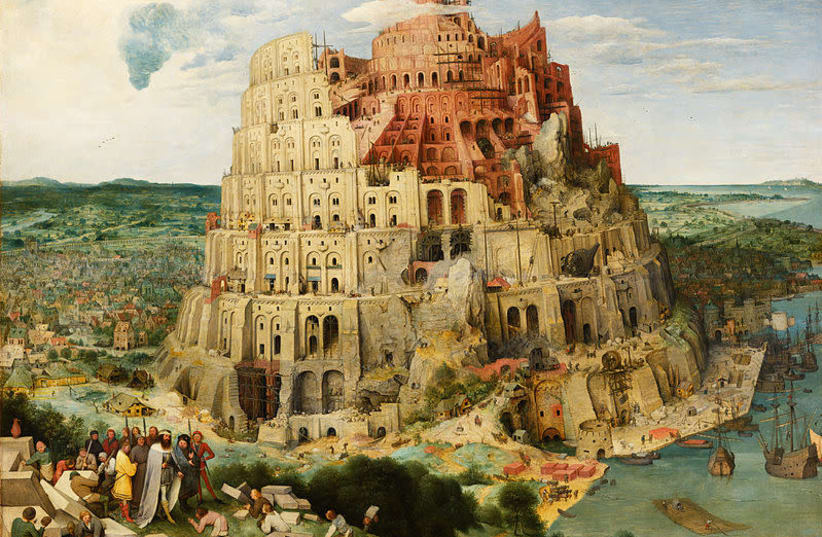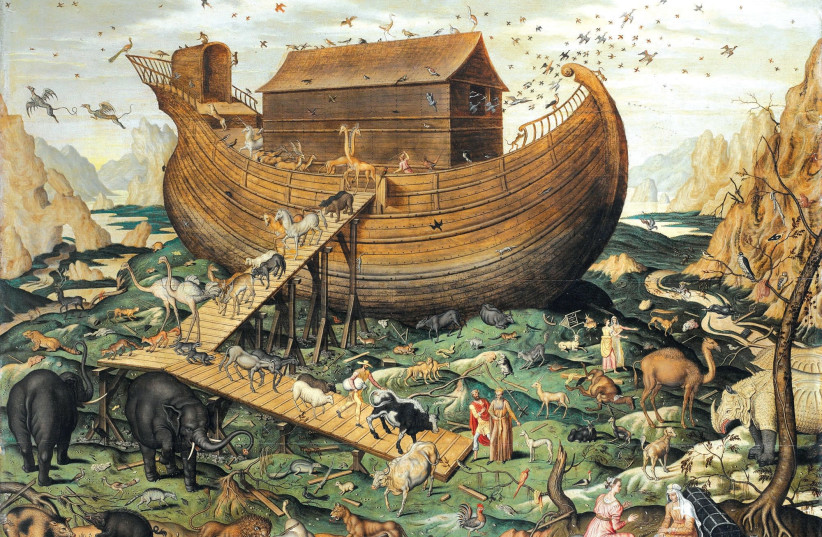This week’s Torah portion deals mainly with the story of the flood and with the description of the fathers of nations, the descendants of Noah, whose family was the only one to survive the flood. In the middle of this description, the Torah goes on to tell us about the Tower of Babel and the events that led to the separation of nations.
The Torah tells us that in those days, all people spoke one language and were united in their desires. They learned how to create bricks and decided to build a city with a huge tower at its center; so huge that it would seem as though its top was “in the heavens” (Genesis 11, 4), and thus they would remain united and strong. The Torah says that God mixed up (balal) their language and in time they began speaking distinct languages so they were not able to understand one another. This caused them to set aside their grandiose plans and disperse to all corners of the earth. That land became known as Babel, derived from the word belila – confusion.
This story raises the question: Why did God punish those building the tower if unity is usually considered a positive value, not one seen in a negative light?
Rabbi Shlomo Ephraim Luntschitz, a rabbi and commentator in Prague in the early 17th century, known for his commentary on the Torah named the Kli Yakar, was accepted as one of the central pillars of biblical commentary. He offered a brilliant explanation that shed light on the story of the Tower of Babel, based on the words of the sages of the Mishna: “The dispersal of the wicked is beneficial to them, and beneficial to the world.
“The dispersal of the righteous is detrimental to them, and detrimental to the world.
“The assembly of the wicked is detrimental to them and detrimental to the world.
“The assembly of the righteous is beneficial to them and beneficial to the world” (Sanhedrin 8, 5).
The sages of the Mishna are saying that it is better for the world and better for the wicked that they be dispersed and far from each other. On the other hand, the gathering of the righteous is beneficial for them and for the world. We can easily understand why it’s bad for the world when evil people unite, but why is it considered bad for them as well?
When there is a gathering of people who have good intentions, their common goal is to increase goodness in the world. Though there are many aspects to what goodness is, its essence is one and the same. Those same people also wish to do good for one another, which leads them to be more united, which is ultimately beneficial for them and for the world at large.
In contrast, when there is a gathering of people with negative intentions, there is no true unity. It is only external since each person is striving for his own personal benefit, whether it be financial profit, power and control, or respect. Such a collective will inevitably collapse, bringing disaster upon the collective which will turn on itself.
The builders of the Tower of Babel describe the goal of their collective with the words, “let us make ourselves a name” (Genesis 11, 4), meaning – their goal was to be world-famous and to go down in history as courageous and powerful. They thus revealed that the purpose of their collective was negative and slated to bring disaster upon themselves.
God did not punish the builders of the tower. He was concerned with their well-being when he caused them to be dispersed around the world since only in this way would there be a greater chance for peace among them.
We can learn something important from this story of the Tower of Babel story that is applicable to our lives as a nation and as a society. A collective can be a wonderful thing if it’s contingent on each person in it wanting to benefit others and if it is devoid of the desire to achieve personal gain. It is up to us to work toward true unity, the kind that is beneficial for us and for the entire world.
The writer is rabbi of the Western Wall and Holy Sites.

